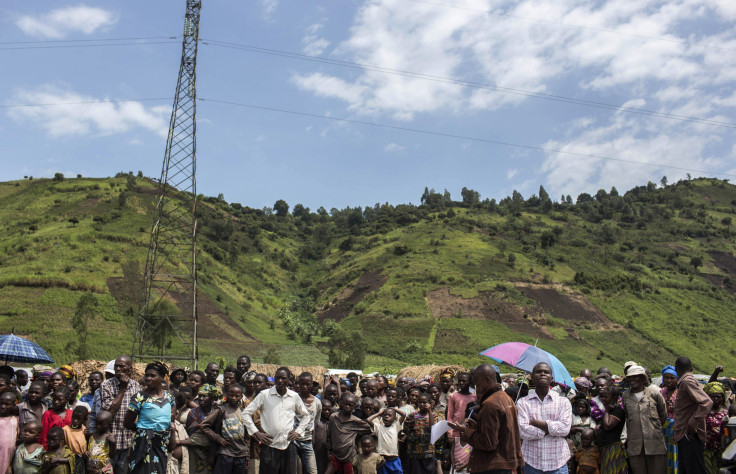UN Peacekeepers For Combat? In DR Congo, Blue Helmets To Get Serious About Intervention

United Nations peacekeepers in the Democratic Republic of the Congo have been authorized to operate an offensive combat force, according to a resolution adopted unanimously by the U.N. Security Council on Thursday.
The peacekeeping organization, called the United Nations Organization Stabilization Mission in the Democratic Republic of the Congo, or Monusco by its French acronym, was established in 1999 and can include up to 19,815 members, at least 17,700 of which are currently on the ground. The “intervention brigade” authorized on Thursday will consist of about 3,000 troops from Malawi, Tanzania and South Africa, according to Voice of America.
Monusco was criticized last year when its mandate prevented it from stopping a Congolese rebel group called M23 from taking over the eastern city of Goma in November. M23 has since withdrawn and been weakened by infighting, but its members still present a threat to Goma and surrounding communities.
The M23 insurgency was only one recent episode of long-running clashes witnessed in central Africa, which involve militants and financial backers from various countries. The new mandate, Security Council Resolution 2038, condemned various insurgencies in central Africa including M23, the Lord’s Resistance Army of Uganda and the Democratic Forces for the Liberation of Rwanda. It “tasked the new brigade with carrying out offensive operations, either unilaterally or jointly with the Congolese armed forces … to disrupt the activities of those groups,” according to a UN press release.
The brigade will also use unmanned aircraft to conduct surveillance along the border between the DR Congo, Rwanda and Uganda. Both neighbors have been accused of backing rebel groups including M23.
Authors of the resolution were cautious, noting that the intervention brigade has a one-year mandate and that it operates on an “exceptional basis and without creating precedent.” Offensive mandates are virtually unheard of for U.N. peacekeeping outfits.
But U.N. peacekeepers have performed combat operations before. In the DR Congo, for instance, the United Nations Operation in the Congo, known by its French acronym ONUC, was in place from 1960 to 1964 and was authorized by the Security Council in 1961 to “take vigorous action, including the use of the requisite measure of force,” in order to prevent mercenary fighters from exacerbating instability in the Katanga province.
Still, these instances are rare, making the new mandate for Monusco a unique one.
The DR Congo has been plagued by instability for decades. The vast country of 68 million suffers from endemic poverty, and weak governance has created vacuums of power in regions far from the capital city of Kinshasa. This has allowed a kaleidoscope of militant groups to assert power and commit human rights abuses against civilians.
The situation is further complicated by valuable resources. Despite being one of least developed nations on earth, the DR Congo is home to immense mineral deposits including gold, iron, tin and tungsten. Criminal activities help divert some of these riches into the coffers of militias, or across borders to foreign entities.
Overshadowing everything are memories of the 1994 genocide in neighboring Rwanda, which revolved around ethnic conflicts and killed at least 500,000 people, and the two massive wars that rocked the DRC and neighboring countries between 1996 and 2003, killing millions.
The move to authorize an intervention brigade has been welcomed by many, though political reform and increased civil engagement will be key to long-term progress for the DR Congo.
U.N. Peacekeeping chief Herve Ladsous told VOA he hopes the new brigade will bring positive changes. “This of course, is a very new tool, because it means for the first time that there will be a peace enforcement capacity which will carry out targeted offensive operations, either in support of the Congolese army or unilaterally in order to neutralize the armed groups -- the negative forces that have created so much suffering over the years,” he said.
© Copyright IBTimes 2024. All rights reserved.












